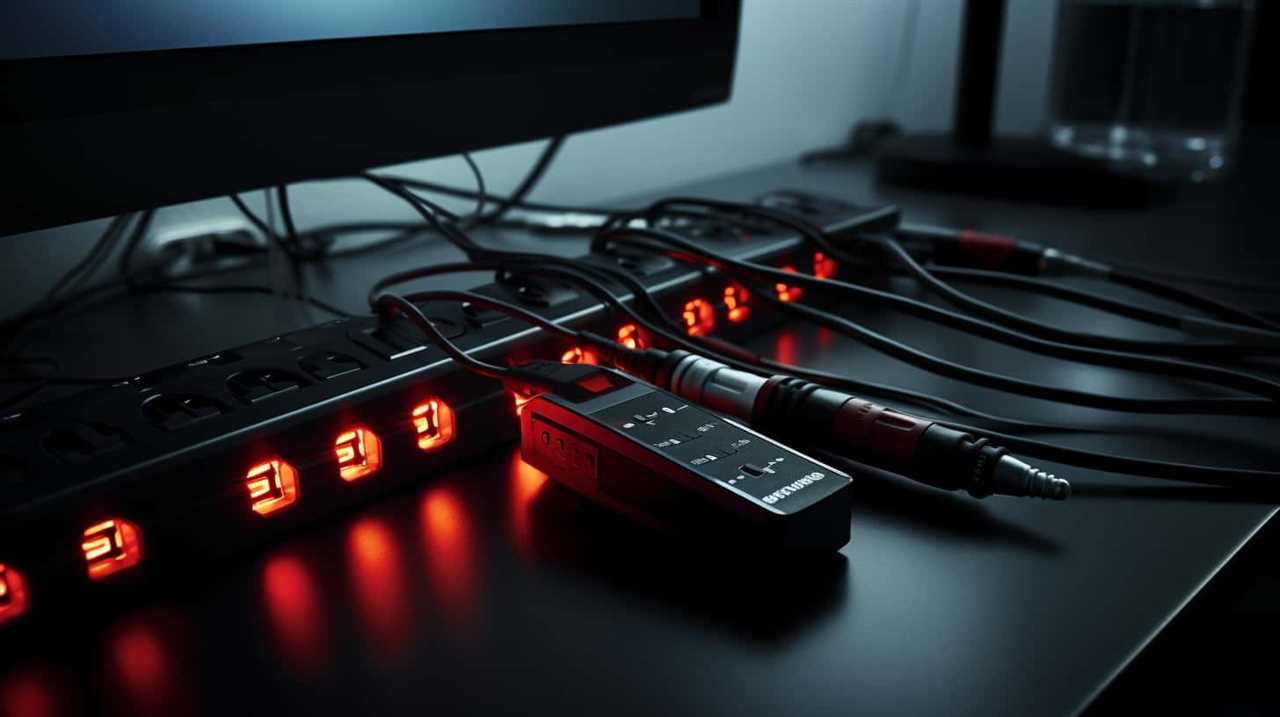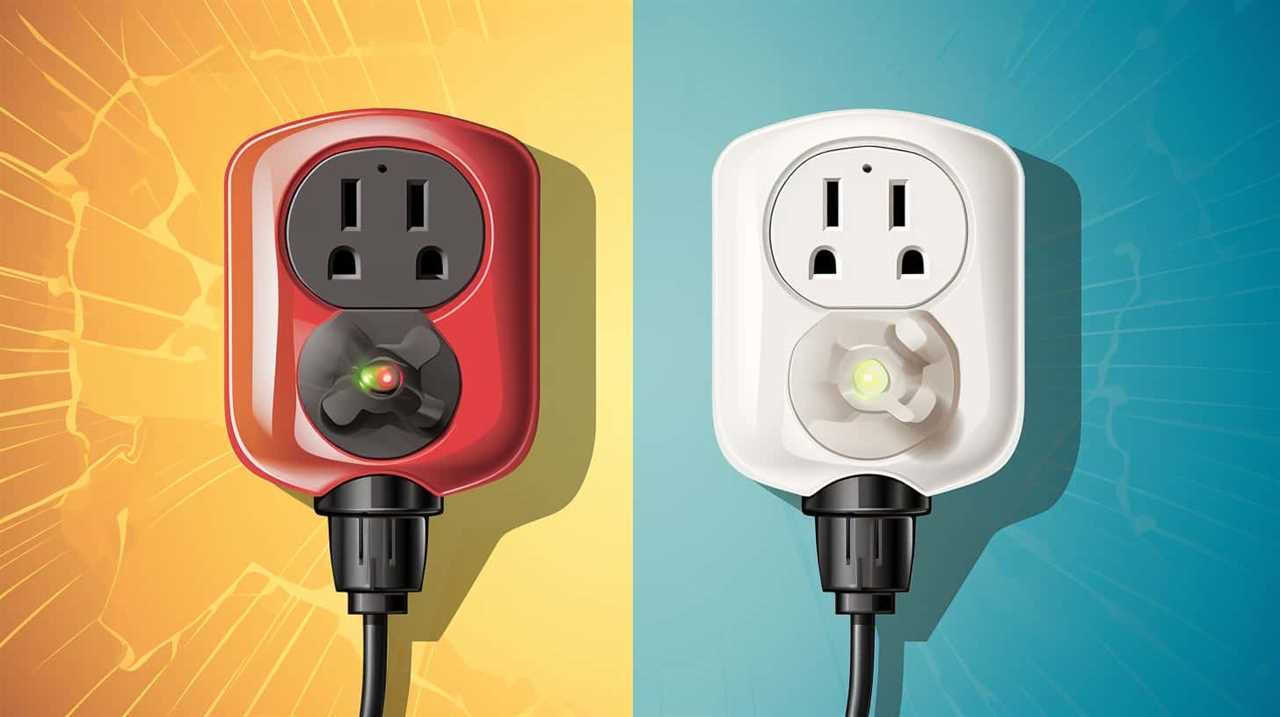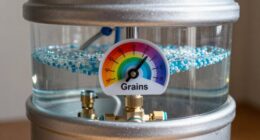In the UK, household appliances are responsible for a large portion of electricity consumption. Our analysis in 2022 revealed the top power-consuming appliances.
From refrigerators to air conditioners, electric heaters to televisions, we’ve compiled a list of the top energy-guzzlers.
This article will provide you with technical insights and data-driven analysis, empowering you to master your energy consumption and make informed choices for a more sustainable future.
Key Takeaways
- Refrigerators and washing machines are significant contributors to household electricity usage in the UK in 2022.
- Energy-saving practices such as setting the refrigerator temperature to recommended levels and using cold water in washing machines can reduce energy waste.
- Regular maintenance, including cleaning condenser coils and checking door seals, is essential for optimal performance and energy efficiency of refrigerators.
- Considering energy-efficient alternatives like evaporative coolers or ductless mini-split air conditioners can help reduce energy consumption and save on electricity costs.
Refrigerators
Refrigerators account for a significant portion of our household electricity usage in the UK in 2022. As consumers, it’s crucial that we implement refrigerator energy saving tips and prioritize regular refrigerator maintenance to optimize energy efficiency and reduce electricity consumption.

One effective tip is to set the refrigerator’s temperature to the recommended level of 3 to 5 degrees Celsius. This ensures food safety while minimizing energy waste.
Additionally, keeping the refrigerator well-organized and avoiding overloading it can enhance airflow and facilitate efficient cooling.
Regularly cleaning the condenser coils and checking the door seals for any leaks are essential maintenance tasks that can improve the refrigerator’s performance.
Washing Machines
When it comes to household electricity usage in the UK in 2022, washing machines play a significant role. These essential appliances consume a considerable amount of energy, making it crucial to optimize their performance and efficiency. Energy-saving tips can help reduce the electricity consumption of washing machines.

For instance, using cold water instead of hot can save energy, as 90% of the energy used by a washing machine goes into heating water. Additionally, running full loads and choosing shorter wash cycles can further enhance energy efficiency.
However, common washing machine problems can hinder their performance and increase energy usage. Issues such as leaks, clogged filters, or worn-out belts can result in decreased efficiency and higher energy consumption. Regular maintenance and prompt repairs are vital to ensure optimal performance and energy efficiency.
Air Conditioners
Air conditioners are a common household appliance that can consume a significant amount of electricity.
However, it’s important to consider energy-efficient alternatives that can help reduce energy consumption.
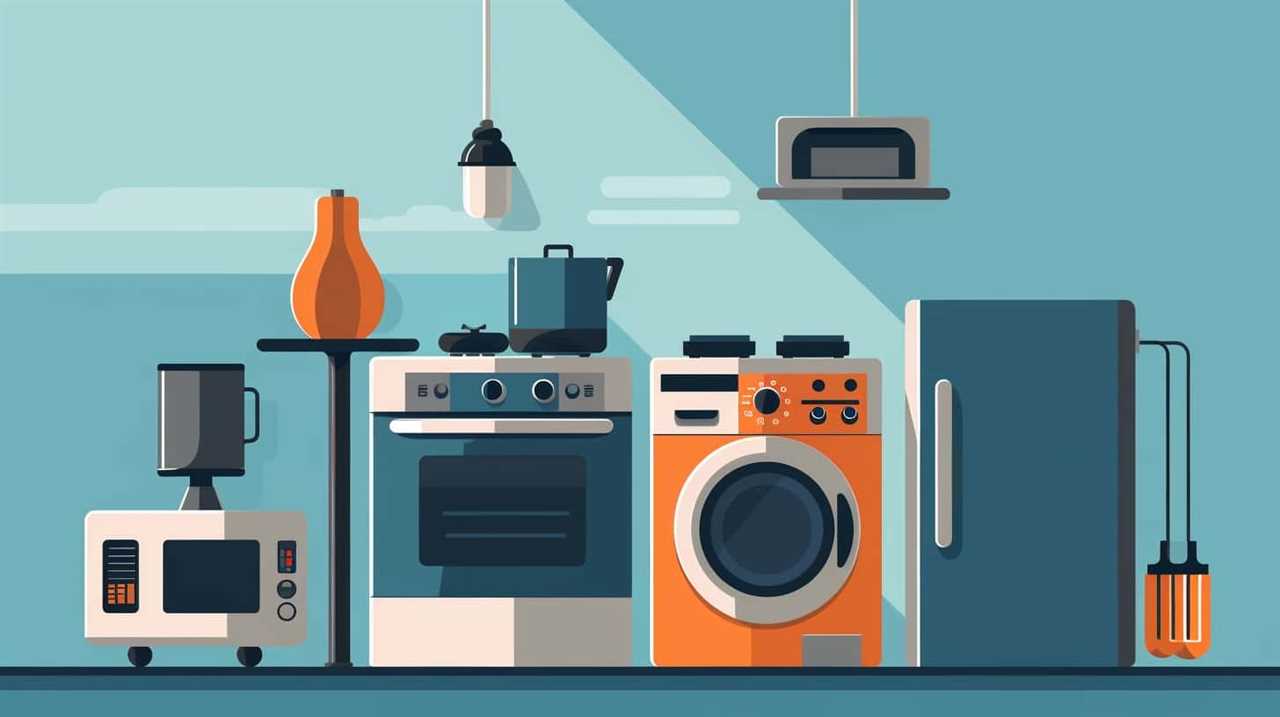
Energy-Efficient Alternatives
We can explore more energy-efficient options for cooling our homes by considering alternative air conditioning systems. When it comes to energy-saving tips, one cost-effective option is to use evaporative coolers.
Evaporative coolers, also known as swamp coolers, work by blowing air over water-soaked pads, which then evaporates and cools the air. These systems use significantly less electricity compared to traditional air conditioners, making them an attractive choice for environmentally conscious consumers.
Another energy-efficient alternative is a ductless mini-split air conditioner. These systems allow for targeted cooling in specific areas of the home, eliminating the need to cool the entire house.
By investing in these energy-efficient alternatives, homeowners can reduce their energy consumption and save on electricity costs.
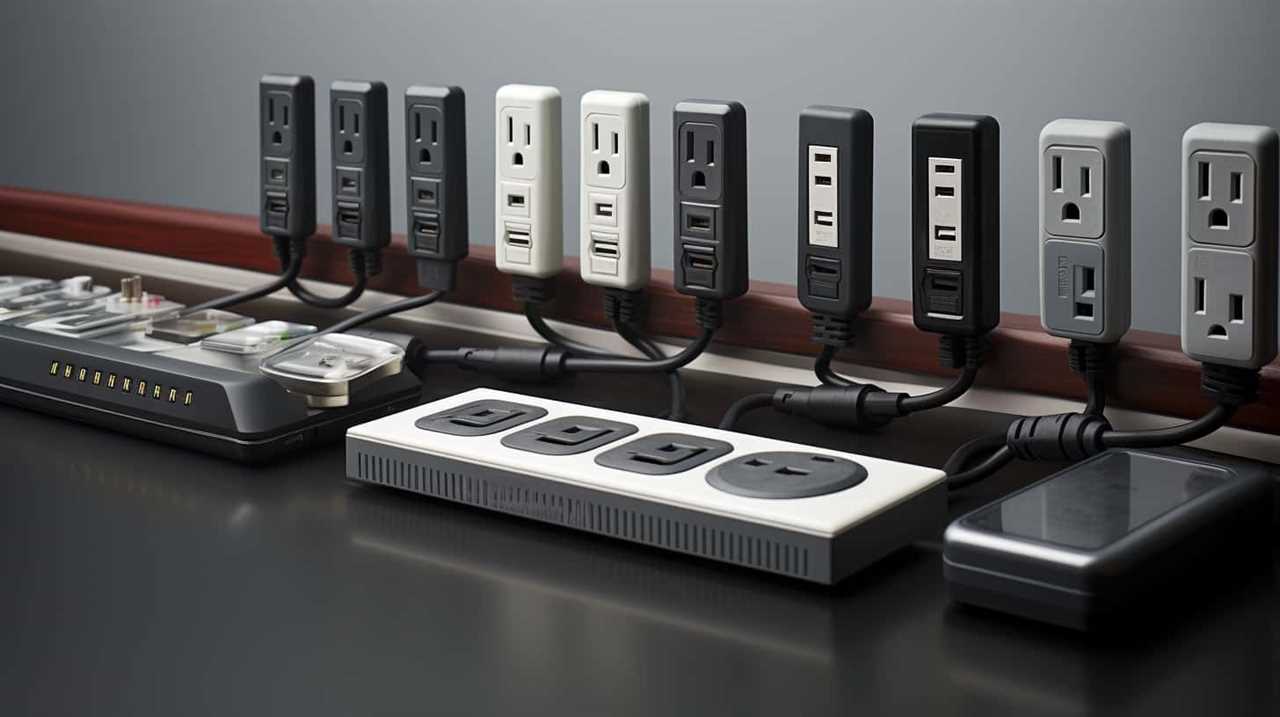
Now, let’s delve into a comparison of energy consumption among different household appliances.
Energy Consumption Comparison
Among household appliances, air conditioners account for a significant portion of electricity consumption in the UK. Energy consumption statistics reveal that air conditioners are one of the most power-hungry devices in our homes. On average, an air conditioner consumes around 2,000 to 3,500 watts of electricity per hour of operation. This means that running an air conditioner for just a few hours can easily surpass the electricity usage of other appliances combined.
To reduce the energy consumption of air conditioners, there are several energy-saving tips that homeowners can implement. For example, setting the temperature a few degrees higher can significantly reduce energy usage. Additionally, regular maintenance, such as cleaning or replacing air filters, can improve the efficiency of the unit.
Electric Heaters
When it comes to electric heaters, it’s important to consider energy-efficient heating alternatives.

These alternatives can have a significant impact on electricity bills, especially during the colder months.
Energy-Efficient Heating Alternatives
Electric heaters are a cost-effective and environmentally-friendly option for energy-efficient heating alternatives in households. When it comes to energy-efficient heating solutions and cost-saving heating options, electric heaters are worth considering. They offer several advantages over traditional heating systems.
Firstly, electric heaters convert nearly 100% of the electrical energy into heat, resulting in minimal energy wastage. This makes them highly efficient in terms of energy consumption.
Secondly, electric heaters don’t require any fuel combustion, which eliminates the emission of harmful pollutants into the environment.

Additionally, electric heaters can be easily controlled and adjusted to provide precise heating levels, allowing for optimal comfort and energy usage.
With their efficiency, eco-friendliness, and versatility, electric heaters are an excellent choice for households seeking energy-efficient heating alternatives.
Impact on Electricity Bills?
Our electric heaters can have a significant impact on our electricity bills. It is important to understand how these appliances contribute to our overall energy consumption and how we can minimize their impact on our monthly bills. By implementing energy-saving measures and adopting efficient heating alternatives, we can reduce our electricity consumption and save money.
Here is a table showcasing the estimated electricity usage and cost of common electric heaters:
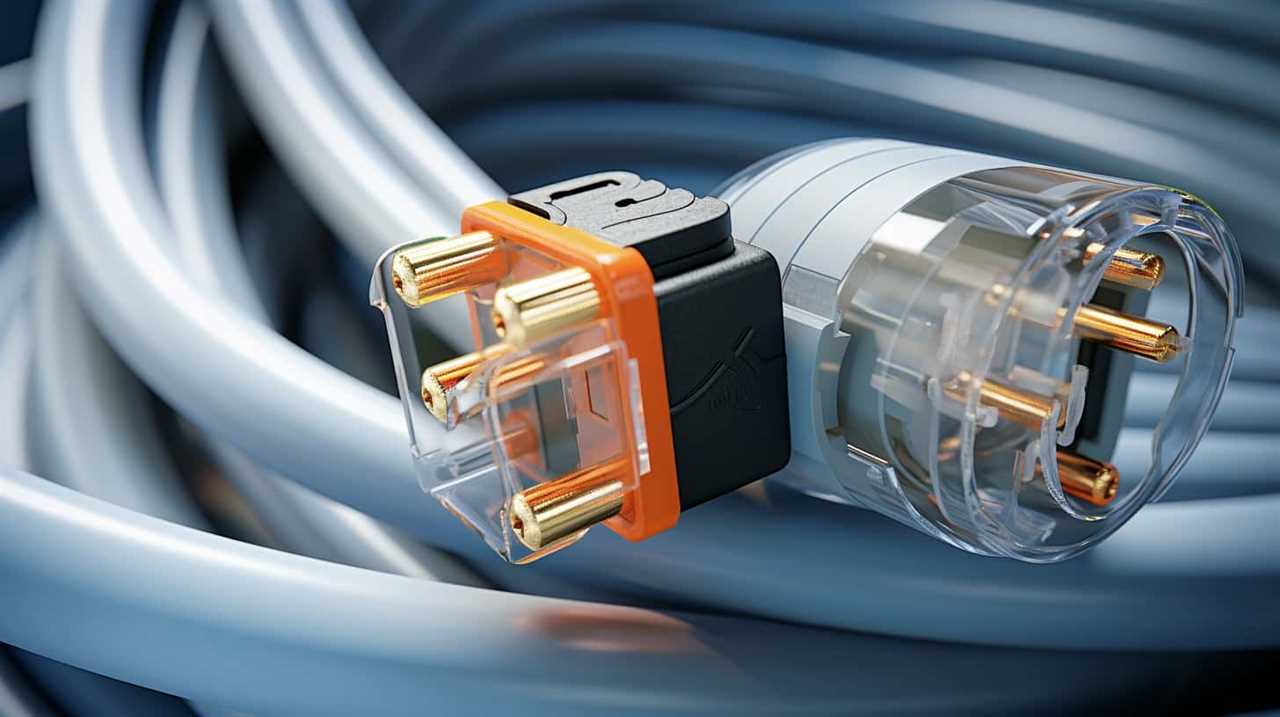
| Electric Heater Type | Estimated Monthly Energy Usage (kWh) | Estimated Monthly Cost (£) |
|---|---|---|
| Convection Heater | 200 | £30 |
| Radiant Heater | 150 | £22.50 |
| Fan Heater | 250 | £37.50 |
To reduce electricity consumption at home, consider the following measures: investing in energy-efficient heaters, using programmable thermostats to regulate temperature, and improving insulation in your home. These measures can have a significant impact on lowering your monthly electricity bills.
Electric Ovens
We use electric ovens extensively in our homes, consuming a significant amount of electricity.
When it comes to electric oven safety, it’s crucial to follow some key guidelines. Always ensure proper ventilation to prevent the buildup of carbon monoxide. Regularly check the oven’s electrical connections and cords for any signs of wear or damage. Additionally, never leave the oven unattended while cooking, and always use oven mitts or heat-resistant gloves when handling hot dishes.
To optimize energy efficiency, consider these electric oven cooking tips. Preheating the oven can help reduce cooking time and energy consumption. Using the oven’s convection setting can also lead to more even cooking and decreased cooking times.

Televisions
Moving on to televisions, they’re another household appliance that consumes a significant amount of electricity. When it comes to energy consumption, there are several factors to consider, with screen size being a key determinant.
Here are three important points to understand:
- Screen size matters: Larger televisions generally consume more electricity compared to smaller ones. This is because larger screens require more energy to power and illuminate.
- LED vs. Plasma: LED TVs are known for their energy efficiency, consuming less electricity compared to older plasma models. If you’re concerned about energy consumption, opting for an LED TV would be a wise choice.
- Standby mode: Even when turned off, televisions in standby mode still draw power. It’s recommended to completely switch off the TV when not in use to minimize unnecessary energy usage.
Understanding these factors can help you make informed decisions when purchasing a television, ensuring both energy efficiency and an optimal viewing experience.
Desktop Computers
Desktop computers consume a significant amount of electricity in households in the UK. With the increasing reliance on technology, it’s crucial to consider desktop computer efficiency and implement power-saving tips.

One of the key ways to improve efficiency is by choosing energy-efficient models. Look for desktop computers with high Energy Star ratings, as these devices are designed to minimize energy consumption without compromising performance.
Additionally, adjusting power settings can make a significant difference. Set your computer to enter sleep mode or hibernate when not in use for an extended period.
Furthermore, enabling power-saving features such as automatic screen dimming and reducing the number of background applications can also help conserve energy.
Dishwashers
When it comes to electricity consumption in households in the UK, dishwashers rank high due to their frequent use and energy requirements. To help you optimize your dishwasher’s energy usage, here are three dishwasher maintenance and energy-saving tips:

- Load efficiently: Make sure to load your dishwasher efficiently by arranging the dishes in a way that allows for proper water circulation. Avoid overcrowding and ensure that the water spray can reach all the surfaces for effective cleaning.
- Use eco-friendly settings: Many modern dishwashers offer energy-saving or eco-friendly settings. These cycles use less water and lower temperatures, reducing energy consumption while still providing satisfactory cleaning results.
- Maintain your dishwasher: Regular maintenance is crucial for maximizing your dishwasher’s energy efficiency. Clean the filter regularly to prevent clogs and ensure proper water flow. Additionally, check the door seal for any leaks and promptly fix any issues to avoid wasting energy.
By following these dishwasher maintenance and energy-saving tips, you can minimize the electricity consumption of this high-ranking household appliance.
Now, let’s delve into another electricity-consuming appliance: tumble dryers.
Tumble Dryers
Continuing our discussion on household appliances that consume the most electricity in the UK, let’s now turn our attention to tumble dryers.
Tumble dryers are notorious for their high energy consumption, but with proper maintenance and strategic usage, it’s possible to reduce their energy consumption.

Regular maintenance is essential for ensuring optimal performance and energy efficiency of tumble dryers. Cleaning the lint filter after every use helps improve airflow, reducing drying time and energy usage. Additionally, periodically inspecting the vent hose and removing any blockages can further enhance efficiency.
To reduce tumble dryer energy consumption, consider using the appliance only when necessary. Whenever possible, air-drying clothes is a more energy-efficient alternative. When using the dryer, avoid overloading it as this can prolong drying time and increase energy usage. Selecting the appropriate drying cycle for each load can also save energy.
Frequently Asked Questions
Are There Any Energy-Efficient Models Available for Electric Ovens?
Yes, there are energy-efficient models available for electric ovens. These ovens offer numerous benefits, including lower energy consumption, reduced electricity bills, and a smaller environmental footprint.
How Can I Reduce the Electricity Consumption of My Desktop Computer?
To reduce desktop computer electricity consumption, we can apply energy-saving tips. By adjusting power settings, using sleep mode, and upgrading to more efficient hardware, we can lower energy usage and save costs.

Is It More Energy-Efficient to Use Air Conditioning or Electric Heaters to Heat a Room?
Using energy efficient air conditioners is more efficient than using electric heaters to heat a room. Air conditioners use less electricity to produce the same amount of heating, making them a more economical choice.
Can Using a Dishwasher Save More Energy Compared to Handwashing Dishes?
Using a dishwasher can save more energy compared to handwashing dishes. It’s like having an efficient assistant who cleans with precision, while handwashing can be time-consuming and less precise.
Are There Any Tips for Reducing the Electricity Usage of a Tumble Dryer?
To reduce the electricity usage of a tumble dryer, we can try a few tips. Firstly, clean the lint filter regularly to improve airflow. Secondly, dry full loads to maximize efficiency. Lastly, consider air-drying clothes whenever possible.
Conclusion
In conclusion, our analysis reveals that refrigerators are the top electricity consumers among household appliances in the UK in 2022. This fascinating statistic highlights the significant impact of refrigerators on overall energy consumption.

As such, it’s crucial for individuals to consider energy-efficient models and adopt responsible usage habits to reduce their environmental footprint. By making informed choices, we can contribute to a more sustainable future while still enjoying the convenience of these essential appliances.




